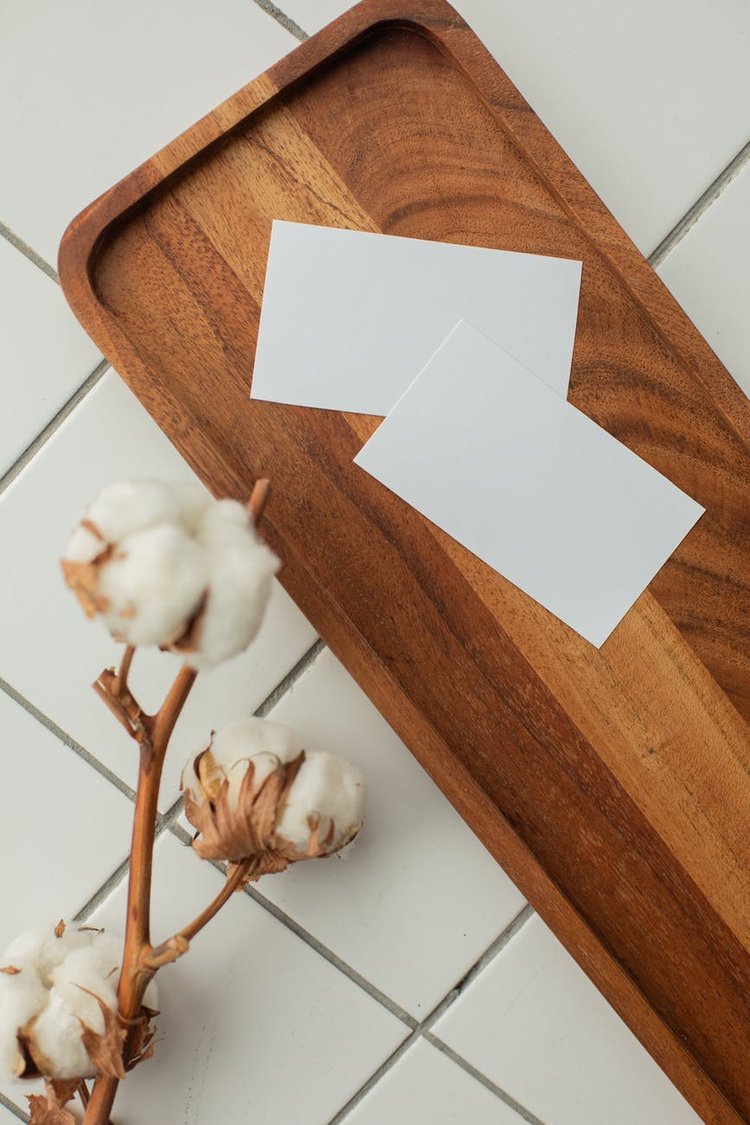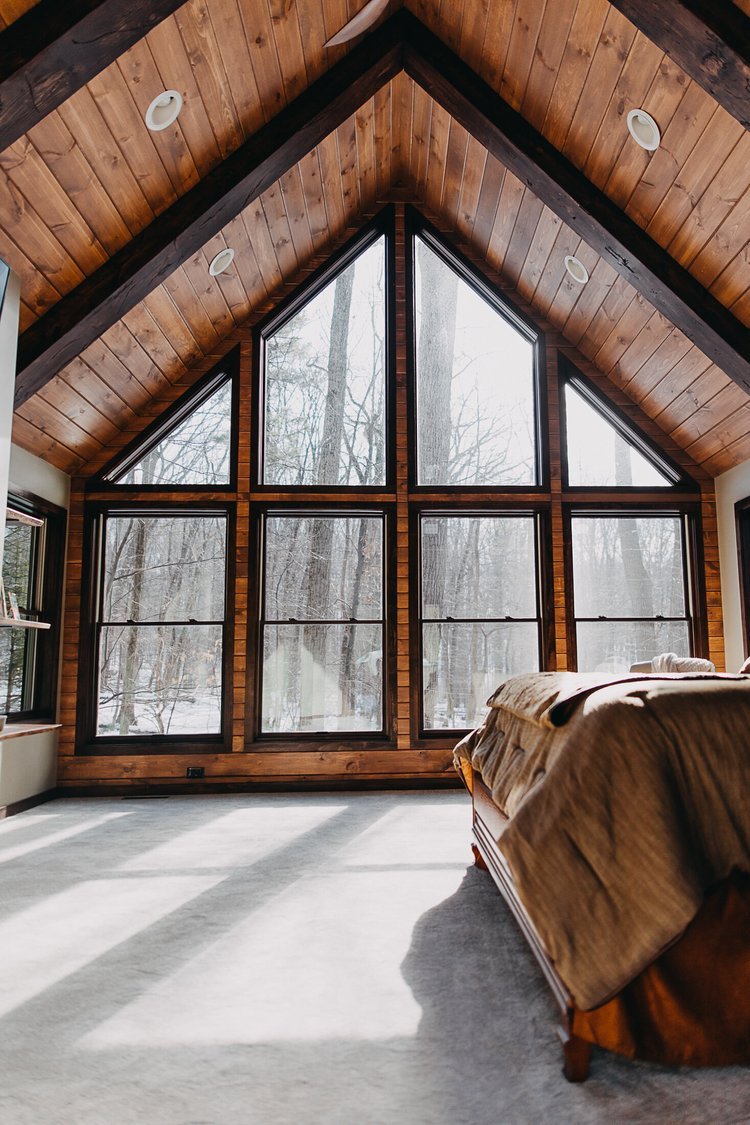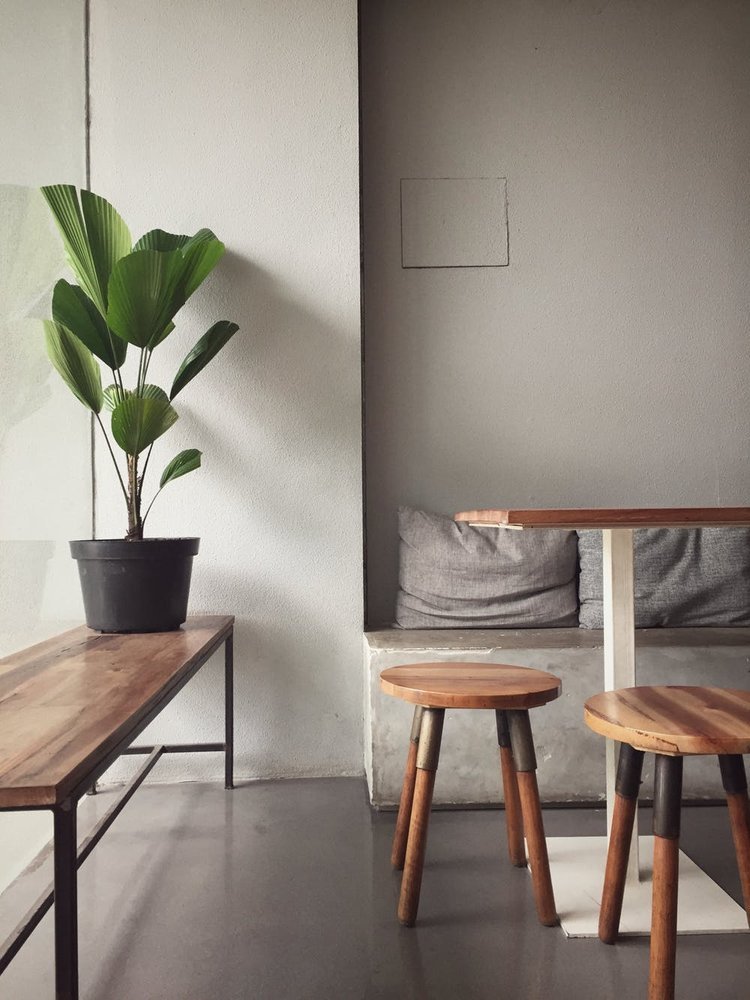Flooring Types: Pros and Cons
We’ve looked at roofing types, we’ve looked at paint colors, and now here’s our guide to flooring types! Flooring significantly affects the flow and feel of any home design, and there are so many important factors to consider when looking to change your current flooring situation. So, here are a few pros and cons to consider when choosing the best flooring for your own home.
Note: Due to current inflation rates, prices are susceptible to rapid change. Therefore, please take these ranges only as a baseline, and note that costs may be higher than written here as a result. Also, note that flooring types with extremely wide price ranges are due to variations in quality and intricacy of design.
Hardwood
Who doesn’t love a good hardwood floor? It’s classy, timeless, lasts for a long time, and increases the value of your home more than most other flooring options. Plus, the wide variety of wood and stain types means there’s an incredibly wide range of styles and designs to choose from!
Price:
~$6-12 dollars per sqft
Pros:
Durable
Timeless
Increases home value
Variety of design options
Cons:
More expensive
Susceptible to water damage
Susceptible to dents, scrapes, and scratches
Engineered Wood
If you want the aesthetics of a gorgeous hardwood floor at a lower cost, engineered hardwood floors are the way to go! Made with a plywood core and a hardwood exterior, high-quality versions of this flooring type last just as long as their hardwood counterparts, with a lower price tag—and you won’t be able to see the difference.
Price:
~$5-10 per square foot
Pros:
Can be as durable as hardwood
Cheaper than hardwood
Same aesthetic benefits of hardwood
Less susceptible to water/moisture damage than hardwood
Easier, cheaper installation
DIY friendly
Cons:
Susceptible to denting and scratching
More expensive than other flooring options
Still more susceptible to water/moisture damage than other flooring types
Susceptible for fading under UV exposure
Laminate
Image: Pexels/Max Vakhtbovych
Laminate is an affordable option for many homeowners. It can mimic the style of wood flooring or tile and is relatively durable.
Price:
~$3-8 per square foot
Pros:
Cheaper than other options
Durable
Variety of colors and styles
DIY friendly
Less susceptible to scratches and dents
Cons:
Susceptible to moisture/water damage
Can chip easily
Wood styles can look fake/less visually appealing
Hollow sound underfoot
Difficult to repair
Vinyl/Linoleum
Image: Pexels/ Ksenia Chernaya
While vinyl or linoleum floors used to be the cheap, fake-looking alternative to wood, tile, or stone; recent versions mimic most different materials much more effectively while remaining the less expensive option. They have also significantly increased in their durability.
Price: ~$3-15 per sqft
Pros:
Incredibly water resistant
Durable, even in high-traffic areas
Wide design choices and varieties
Cons:
Lower return on investment than other options
Can look fake or ineffectively mimic other materials
Less long-lasting than other options
Tile
Image: Pexels/Monstera
Tile is the classic go-to for many bathrooms and kitchens, or anywhere where water damage is possible. It’s beautiful, durable, and great for high-traffic areas. It can range widely in price depending on the material: glazed ceramic tile is a cheaper alternative, while porcelain tile will up the budget.
Price:
~$5-20
Pros:
Water-resistant
Durable
Good for high-traffic areas
Long-lasting
Plenty of design options/styles
Cons:
More expensive
Difficult install
Cold and slippery underfoot
Can chip under heavy use
Natural Stone
Natural stone is one of the most gorgeous flooring options on the market (I’m definitely biased on this one!) It also happens to be one of the most expensive options—but it may be worth it, seeing that it will probably outlive you. If you’re going for the luxurious but natural feel, this may be the way to go!
Price:
~$12-17 per square foot
Pros:
Highly durable and long-lasting
Not slippery like other tiles
Aesthetically pleasing
Eco-friendly
Acts as an insulator
Cons:
More expensive
Some stone types are porous, making them susceptible to water damage
More work to do before installation
Difficult & expensive to repair/maintain
Carpet
Carpet is the classic way to keep your space feeling warm and inviting for a relatively low cost. It remains a favorite for most homeowners, especially for bedrooms.
Price:
~$3-11 sqft
Pros:
Soft and warm underfoot
Plenty of design options
Helps with soundproofing
Cost-effective
Cons
Hard to clean
Susceptible to staining
Shows wear pattern
Can retain smell
Not good for high-moisture areas: kitchen & bathrooms
Concrete
Image: Pexels/ Catherin Agustin
Concrete as a flooring option has been around for millennia, but it has recently soared back into popularity as a modern take on the classic building material. It’s incredibly versatile, and a concrete floor can match almost any design style with options such as polished, acid-washed, stained, painted, and tile.
Price:
~$3-30 per square foot ($2-6 for basic design, $7-14 for mid-range design, and $15-30 for high end-design)
Pros:
Low Maintenance
Durable
Beautiful design options
Less expensive
Cons:
Susceptible to moisture damage
Potential for cracking
Hard underfoot
Are you looking for a contractor to renovate or add on to your home? Get a quote from us to jumpstart your process!









